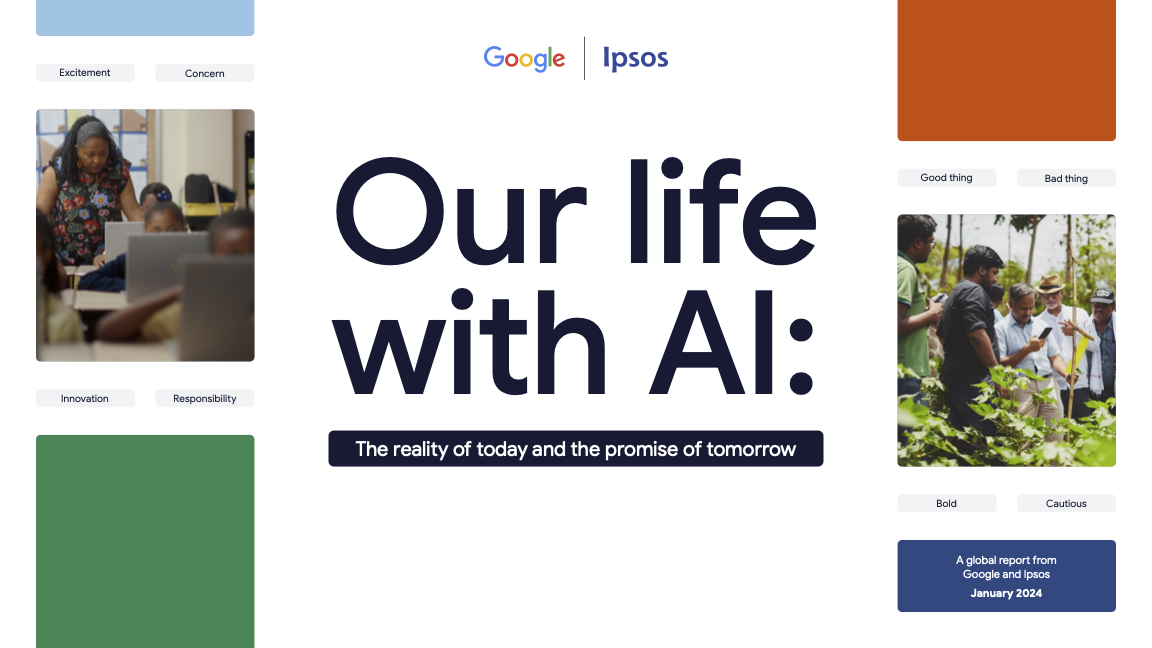In the last few years, the conversation around AI has shifted as people have first-hand experiences with AI applications, hear about it in the news, and talk about AI’s future. To better understand global sentiment around AI, Google and Ipsos conducted one of the largest global AI surveys of over 17,000 participants across 17 countries resulting in a new report: “Our Life With AI.”
This survey is part of Google’s Digital Futures Project, an initiative that aims to bring together a range of voices to support researchers, organize convenings and foster debate on public policy solutions to encourage the responsible development of AI.
Key highlights:
Data presented represents an aggregate global percentage. The entire survey spans 17 countries globally. For more information on specific country and regional findings, see the full report.
